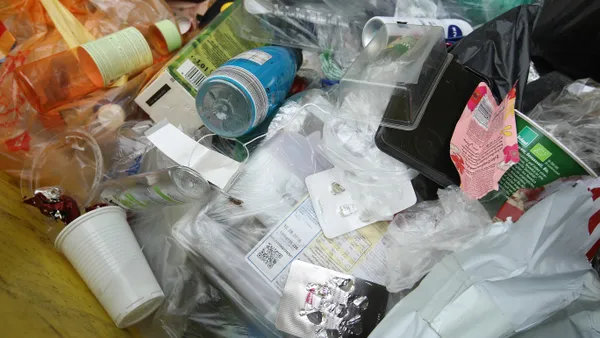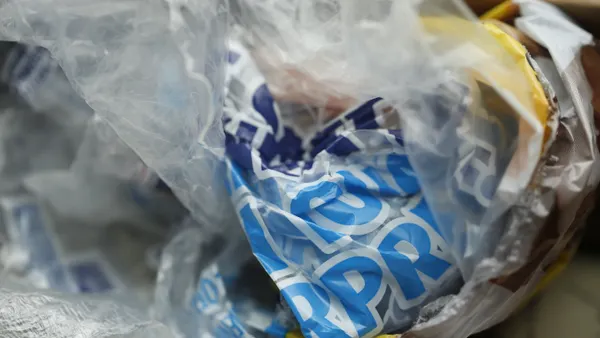Dive Brief:
- Thailand's Department of Industrial Works (DIW) has temporarily halted imports of plastic and electronic scrap, according to ThaiVisa and others.
- Although the ban is temporary, DIW is working toward a long-term measure to indefinitely ban plastic scrap and e-scrap.
- Police have raided a number of facilities during the past month on suspicion that they illegally imported e-scrap, and DIW will work with local authorities to inspect all of the country's more than 2,200 recycling facilities.
Dive Insight:
Thai government officials say the scrap import crackdown is in response to public outcry over deteriorating environmental conditions. Essentially, that's a trickle-down effect from China's scrap imports ban because Thailand and other Southeast Asian countries now have become so-called "dumping grounds" for the world's scrap. Estimates point to a twofold increase of scrap flowing into Thailand in the months following China's ban.
Thailand is particularly concerned about e-scrap because of the potential health risks related to recovered items that contain hazardous materials including lead, mercury and cadmium. The recycling facility raids primarily relate to e-scrap rather than other types of scrap, and at least one occurred after complaints from residents about a foul smell emanating from the facility.
Thai enforcement authorities report ongoing problems with e-scrap recyclers importing materials that aren't allowed. In addition to potentially creating a human health and safety risk, the outlawed materials can pose environmental dangers. The illicitly imported materials sometimes are forwarded to other facilities that improperly dispose of hazardous materials contained within the e-scrap. The newly promised recycling facility inspections will be an additional measure to track down illegal e-scrap as well as plastics.
Thai authorities have been mulling this type of ban for a while as an environmental measure. But the timing certainly indicates it mainly stems from increased attention to waste-related environmental concerns following China's recyclable materials ban.
The influx of scrap materials to other Southeast Asian countries since China's ban has become overwhelming because those countries only have a fraction of China's capacity to accept such items. Vietnam directly stated that it decided to stop accepting scrap plastic imports last month due to a backlog of plastic scrap-filled containers at its main port. Indonesia was less forthcoming about the exact reasoning behind its new 100% pre-shipment inspections on recovered fiber imports, but the widely understood assumption is that it's also in response to overcapacity related to China's materials ban.
A recent Bureau of International Recycling (BIR) release reiterated China's plan to cease waste and scrap imports by the end of 2020, adding, "BIR predicts further changes to Chinese standards and laws in order to affect its recycled raw material needs." With more action anticipated from China, other Southeast Asian countries likely will follow suit with additional regulatory measures in the coming months.










